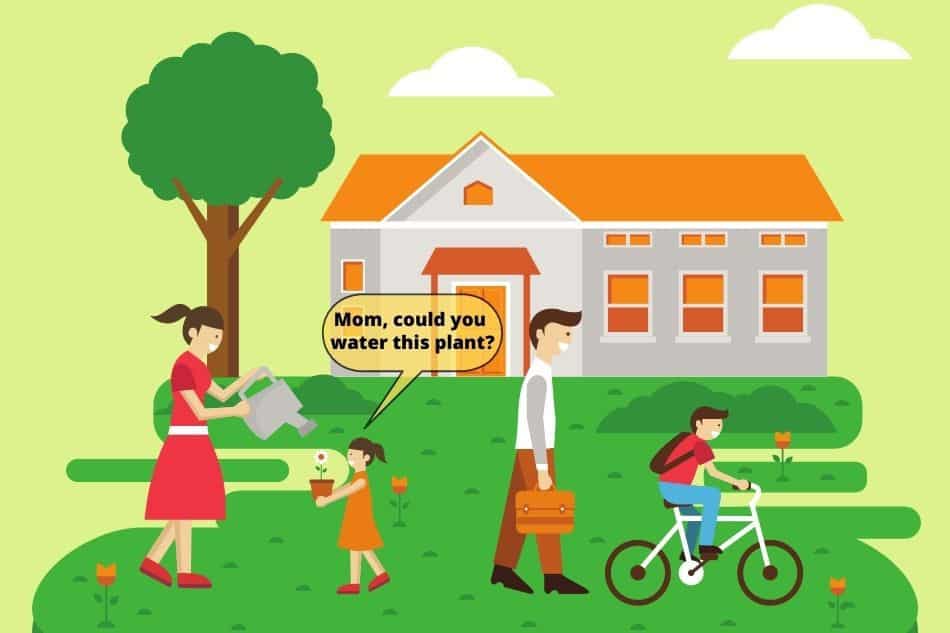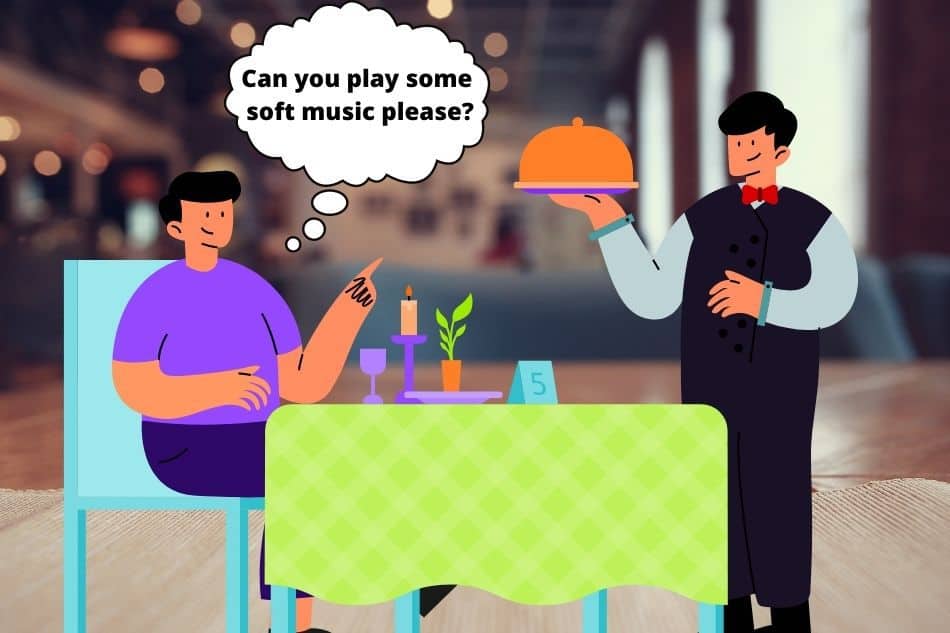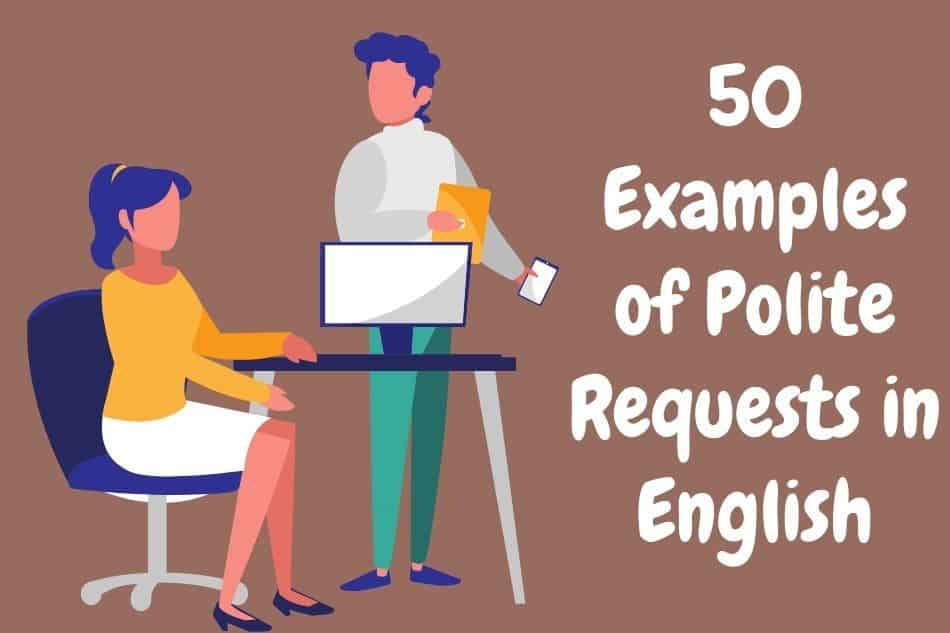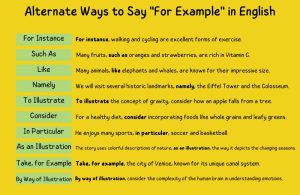This article covers the following areas –
- 10 Examples of Polite Requests at Home
- 10 Examples of Polite Requests at School
- 10 Examples of Polite Requests at Work
- 10 Examples of Polite Requests at the Restaurant
- 10 Examples of Polite Requests at the Public Place
- Final Words
- FAQ: Making Polite Requests in English
We interact with a lot of people every day, and we usually happen to make polite requests to them. Making a polite request means asking someone to do something politely. For example, “Can you please tell me the time?” or “Can you give me a hand?” Below is a table with English expressions for making requests in different contexts, such as at home, school, work, a restaurant, and a public place.
| Context | Expression 1 | Expression 2 | Expression 3 |
|---|---|---|---|
| Home | Could you please pass the salt? | Would you mind turning down the TV a bit? | Is it possible for you to help me with the dishes? |
| School | May I borrow a pencil, please? | Can I have some assistance with this problem? | Would it be okay if I left early for an appointment? |
| Work | Would you be able to email me the report? | Could we set up a meeting to discuss this? | I was wondering if I might take a day off next week? |
| Restaurant | Could I get the menu, please? | May I request a table by the window? | Would it be possible to have the dressing on the side? |
| Public Place | Excuse me, could you direct me to the subway? | Is it alright if I take this seat? | Would you mind keeping an eye on my bag for a moment? |
These expressions are designed to be polite and considerate, using modal verbs like “could,” “would,” and “may,” which are typical for polite requests in English. They also sometimes include phrases like “Would you mind” and “Is it possible,” which soften the request and make it more courteous.
However, in the later part of the post, I’ve listed 50 more common examples of polite requests based on different situations, like when you’re at home, school, work, a restaurant, or a public place. I’ve listed 10 examples for each of these situations. Some of them are appropriate for formal situations, while others are for informal and semi-formal situations. Looking at these 50 examples of polite requests is essentially a helpful technique for learning how to make polite requests in English.
Before I move to the examples of each kind of situation, I would like to request you to share some examples of polite requests in English in the comment box. Well! If you are looking for a book or a guide to help you learn and improve your English, you may try English Made Easy Volume One: A New ESL Approach: Learning English Through Pictures (Amazon Link). This book creatively uses pictures and text in tandem to revolutionize English language learning, making it easier to understand and more effective overall.
10 Examples of Polite Requests at Home

When we’re at home, we interact with our family members, such as parents, children, siblings, roommates, or even babysitters and servants. Although “At home” is an informal environment, we probably want to be polite to them when we ask them to do something for us.
To make polite requests at home, use courteous language and phrases such as “Could you please…” or “Would you mind…”. This approach reflects respect and consideration for the other person, fostering a harmonious and cooperative home environment.
The following examples of polite requests in daily conversations are commonly used at home.
- Mom, can you close the door, please?
- Honey, can you please eat with your mouth closed?
- Can you shut the window? The room is already too cold.
- Anna, can you bring me the newspaper, please?
- Bob, will you stop bothering Mom? She’s working.
- Hey, can you please receive the parcel? I’m going to take a shower.
- Could you get me a cup of coffee?
- Will you stop making noise? I can’t concentrate on my study.
- Could you feed something to the baby?
- Could you turn off the lights, please? I can’t sleep.
Sample Conversation: Polite Requests at Home
Situation: Mike has been noticing that his wife, Anna, has been busy with the kids and household chores all day. He decides to offer his help and make some polite requests to ensure everything at home is handled smoothly.
Mike: Hey Anna, you’ve been really busy all day. Can I help with anything?
Anna: Thanks, Mike. I haven’t even started on dinner yet.
Mike: How about I make some spaghetti tonight?
Anna: That would be great, thank you!
Mike: And I’ll check the kids’ homework, too. Why don’t you take a break afterward?
Anna: A break sounds good. Maybe a quick walk.
Mike: Sounds good. And later, what do you think about a family movie?
Anna: Let’s do that. The kids can choose the movie.
Mike: Done. Dinner and a movie night it is! Let’s have a relaxing evening.
Anna: Thanks, love. That helps a lot.
10 Examples of Polite Requests at School

When you’re at school, make sure to be polite to your teachers, students, classmates, or other people at school. You should be polite enough while talking to a teacher because this is a formal relationship. On the other hand, while talking to your friends, you don’t have to be as formal as with a teacher, but make sure to be nice.
In a school setting, making polite requests involves using respectful language, such as “May I please…” or “I would appreciate if…”. This approach conveys respect for authority and peers, contributing to a positive and collaborative educational environment.
Look at the following examples of polite requests that are commonly used at school.
- Teacher, would you mind giving me detailed feedback on my homework?
- Can you pass me that book?
- Could you please help me with my homework?
- I was wondering if you could write a recommendation letter for me.
- I was wondering if it would be possible for you to send me the feedback tomorrow.
- Could you please keep quiet?
- Can you please change your seat?
- Could you show me the way to the library?
- Can you please hold this book for me?
- Will you pass me the ball?
Sample Conversation: Polite Requests at School
Situation: In a high school classroom, student Tim realizes he has forgotten his math textbook. He sees that his classmate, Eliza, always brings an extra book. Tim asks Eliza if he can borrow her spare textbook for the class.
Tim: Hey Eliza, I forgot my math book. Can I borrow your extra one for today?
Eliza: Sure, Tim. Here’s the spare.
Tim: Thanks a lot. I’ll give it back after class.
Eliza: No problem. Need the homework from it too?
Tim: Yes, please. Could you send me a picture?
Eliza: Will do. And if you need, I can help with the homework.
Tim: That’d be great. Thanks, Eliza!
(After class)
Eliza: Don’t forget to return the book.
Tim: I won’t. Thanks for the help today!
10 Examples of Polite Requests at Work

We usually interact with our coworkers, managers, and other staff daily at work. As this is a formal environment, we’re supposed to be extremely polite if we need to ask someone to do something for us. We must use appropriate phrases, expressions, and body language to get things done.
At work, making polite requests involves using professional language and courteous phrases like “Could you kindly…” or “I would be grateful if…”. This reflects respect for colleagues and superiors, fostering a cooperative and respectful workplace culture.
The following examples can be useful for making polite requests in English at work.
- Could you give me some time after lunch?
- I was wondering if you could reschedule the meeting for next week.
- Could you please send me the project files in zip format?
- Do you mind passing me the stapler?
- I was wondering if it would be possible for you to write a short description of the project for our website.
- Would you please take your seat?
- Would you please hand me the mic?
- John, would you mind helping Sarah in preparing the draft budget? Thanks in advance!
- Could you possibly meet me next week at the office?
- Could you telephone me in the afternoon?
Sample Conversation: Polite Requests at Work
Situation: In the office, Janet realizes she is going to miss an important deadline because her computer is not functioning properly. She decides to approach her colleague, Martin, who is known for his IT skills, to ask for help with the issue.
Janet: Hey Martin, my computer’s acting up and I’m on a deadline. Can you help?
Martin: Sure, Janet. Show me what’s going wrong.
Janet: It’s freezing and not saving my work.
Martin: No worries, let’s fix it. You can use my laptop meanwhile.
Janet: Really? Thanks! How can I thank you?
Martin: Just cover for my coffee break later, okay?
Janet: Deal! Need help with any reports, just ask.
Martin: Will do. Now, let’s see your computer.
(Martin resolves the computer issue while Janet works on his laptop.)
Janet: You fixed it, Martin! I’m on time thanks to you. Coffee’s on me later.
Martin: Happy to help, Janet. And I’ll take that coffee!
10 Examples of Polite Requests at the Restaurant

When at restaurants, we interact with waiters, managers, friends and family, and strangers. Whether it’s a semiformal or formal situation, make sure to consider being polite enough when you request someone.
In a restaurant, making polite requests involves using courteous language, such as “Could I please have…”, “May I request…”, or “I would like to order…”. This conveys respect and appreciation for the staff’s service, enhancing the dining experience.
Look at the examples below that can usually be relatable at restaurants.
- Can you add some extra cheese?
- Could you please make it a double?
- Excuse me! Would you mind leaving this seat for this old lady?
- Do you mind passing me the salt?
- Can you play some soft music?
- Could you please arrange one more table for us?
- I was wondering if you could cancel my order. My guests aren’t coming.
- Could you please change this food? I can see a fly on the rice.
- Would you please turn on some more lights?
- Can you give us some forks?
Sample Conversation: Polite Requests at a Restaurant
Situation: Tom and Linda are dining at a cozy restaurant for their anniversary. They are ready to order but have some special requests due to dietary restrictions and preferences. They catch the attention of their server, Mia, to place their order.
Tom: Hi Mia, can we ask about some substitutions?
Mia: Sure thing. What do you need?
Linda: Can I swap the creamed spinach for a salad without croutons?
Mia: Definitely, with dressing on the side?
Linda: Yes, please.
Tom: I’d like a no-salt steak, medium-rare, with veggies instead of fries.
Mia: Got it. How about starting with our light bruschetta?
Tom: Sounds good.
Mia: And it’s your anniversary, right? Want a dessert later?
Linda: Maybe. We’ll see the menu after dinner.
Mia: Perfect, I’ll take care of everything. Enjoy your meal!
Tom and Linda: Thanks a lot, Mia.
(Mia smiles and goes to the kitchen to place their tailored order.)
10 Examples of Polite Requests at the Public Place

We often interact with strangers when we’re at a public place like a station, a supermarket, a restaurant, a walkway, or a train. No matter where you meet strangers, be polite enough if you have to make a request to them.
In public places, politeness is key. Use phrases like “Excuse me, could you please…”, “I wonder if you might…”, or “Would it be possible to…?”. These expressions show respect and consideration for others, facilitating a positive and cooperative interaction in shared spaces.
The following can be good examples of making polite requests in a public place.
- Would you mind moving aside?
- Could you please press level 5?
- Could you tell me how to get to the supermarket?
- Do you mind giving me a hand with my luggage?
- Would you mind holding the baby for me?
- I wonder if you could help me hire a taxi. I’m pretty new here.
- Could you please keep an eye on my dog? I’ll be right back.
- Could you change the destination on my ticket? I’d like to go to NoHo instead of Bowery.
- Could you please open the door for that old lady?
- I wonder if you could drive a little faster.
Sample Conversation: Polite Requests at a Public Place
Situation: Michael is at a public park enjoying a sunny afternoon. He notices that a family nearby is having a picnic and their ball has rolled over to where he is sitting. The child from the family shyly approaches to retrieve it.
Child: Can I have our ball back?
Michael: Sure, here you go.
Mother: Hope the ball didn’t bother you. Is it okay if we play some music?
Michael: No worries, and yes, music is fine.
(Later, Michael needs to charge his phone.)
Michael: May I use your portable charger?
Mother: Of course, here you go.
(After returning the charger and catching a stray frisbee for someone else.)
Michael: Heading out, thanks for the charger.
Mother: No problem, enjoy your day!
Michael: You too!
(Michael leaves the park, happy with the friendly interactions.)
Final Words
It’s really important to be polite while asking someone to do something because it takes effort for people to do even little things for us. We might sound rude if we don’t use appropriate words or expressions. And, of course, we don’t want to be rude to people. According to a survey conducted in 2016, 74% of adult Americans believe that people are nowadays ruder than they were 20 or 30 years ago.
If you don’t want to sound rude to people, there are other ways:
- When necessary, ask for permission politely.
- Make sure to use proper body language to be even more polite.
- Before talking to someone, ask if they are free to talk.
FAQ: Making Polite Requests in English
1. Why is it essential to make requests politely in English?
Making polite requests shows respect for others, increases the likelihood of a positive response, and fosters better interpersonal interactions.
2. What are common phrases to make polite requests?
You can use phrases like “Could you…?”, “Would you mind…?”, “Is it possible to…?”, or “If it’s not too much trouble…”.
3. How can I make my request sound more sincere?
Using a kind tone, adding “please,” and showing appreciation can make your request sound more genuine.
4. Is it necessary to provide a reason for my request?
While it’s not obligatory, giving a brief reason can make the other person more understanding and willing to fulfill the request.
5. How can I handle situations where my polite request is declined?
Accept the refusal gracefully, express understanding, and, if necessary, seek alternative solutions.
6. Are there differences in making requests in formal versus informal settings?
Yes, in formal settings, you might use more structured language, while in informal situations, you can be more relaxed in your phrasing.
7. Can body language impact the effectiveness of a polite request?
Absolutely. Maintaining eye contact, using open gestures, and nodding can reinforce the politeness of your request.
8. How can I refuse a request politely?
Responses like “I’m sorry, I can’t right now” or “I wish I could help, but…” can decline requests kindly.
9. Are there cultural nuances in making requests?
Yes, the level of directness, formality, and specific phrasing can vary across cultures. Being aware of cultural norms can enhance effective communication.
10. How can I teach children to make polite requests?
Modeling polite behavior, practicing through role-playing, and reinforcing the use of “please” and “thank you” can guide children in making courteous requests.
If you have further questions or suggestions about anything specific related to this topic or anything else related to learning English as a second language, feel free to ask me in the comment box. You may also help the ESLA community by putting your valuable suggestions here to help every member improve their English language skills.





